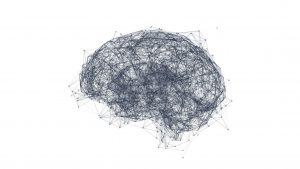Laboratory informatics is a term that covers the usage of a variety of technology tools for data collection and analysis in a laboratory setting. This includes programs that use data analysis to benefit current research as well as store data that can be used in future projects.
This area has expanded quickly as innovative technology makes laboratory equipment more interactive and allows lab services to collect, analyze and share data.
It’s yet another area where professionals with expertise in health informatics are needed. As more advances are made in the collection and analysis of data, more methods are expected to be found for leveraging health informatics in a laboratory setting.
Growth of Laboratory Informatics
By one estimate, the global market for laboratory informatics could reach 3.8 billion by 2024. This is driven, in part, by the need for more automation in laboratories, the need to comply with stringent regulatory measures and the demand from academic research institutes.
Asia is expected to be the area of the world with the largest amount of growth. The technology expected to see the biggest growth in use is laboratory information management systems. These systems can be used in a variety of ways, including:
- Increasing workflow efficiencies
- Reducing transcript errors
- Supporting integration with other lab systems
- Improving regulatory compliance
- Managing information in biobanks, biorepositories and academic research
More than ever, laboratories and healthcare operations are turning to IT companies and service providers to manage their health informatics systems. These companies provide cloud-based services, consulting services and recurring support services.
How It Works
Health informatics systems are needed to update lab systems that are in danger of falling behind, according to a study by researchers in the United Kingdom. The study identified a variety of ways that these systems can improve lab operations. They include:
- Recording all test requests
- Online, real-time linking to automated analytical instruments
- Workflow management
- Worksheet generation for manual tests
- Automated validation of test results
- Recording of quality control data
- Electronic delivery of results to clinical users
- Implementation of decision support systems to enhance clinical outputs
- Data analysis for audit, clinical risk management, disease surveillance and epidemiology
The American Association for Clinical Chemistry, which specializes in library science, reports that lab informatics systems can be used in many specific ways. For example, they can create a subset population of people for a lab study by searching through large healthcare datasets and finding patients who have similar health characteristics.
Another way to put it is informatics is using data to monitor the performance of a lab. For example, data analysis can find ways to speed up lab turnaround times. By collecting data on the amount of time it takes to conduct a test on emergency patients, labs can find ways to make the process more efficient, according to the AACC.
In another example, a lab set the goal of having all hemoglobin tests received by noon done by the end of the day, and to have specimens received after noon done by noon the next day. By looking at the process and finding areas of improvement, the lab now is meeting that goal 97% of the time.




